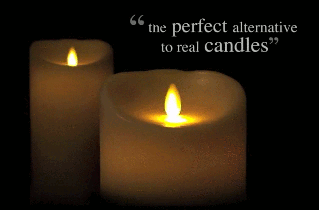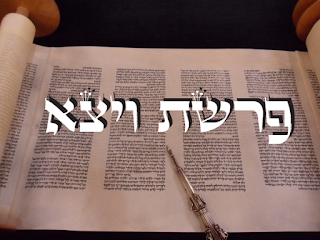Parashat Vayishlach - Genesis 32:3-36:43 - "Abraham's Tent" - Weekly D'var Torah From Rabbi John Ludemann
By Rabbi John Ludemann, BTh.

This week we follow a famous and often misunderstood story from the Bible. We meet up with Jacob as he is about to return home to his father Isaac’s house some 34 years after he had taken the Birthright from Esau his brother (Genesis 32:4-36:43). We begin with Jacob sending “Angels” to Esau to appease his brother in advance of Jacob’s return. The word translated as “Angels” in Genesis 32:4 is “Melechim” which can mean “princes” or “great men”. So, it is less an angelic host than a set of emissaries to impress upon Esau of Jacob’s wealth and might and to dissuade Esau from thinking his “nerdy brother” would be an easy target. Jacob’s emissaries come back with a disturbing report - not only was Esau coming to “greet” Jacob, but Esau had amassed 400 men (warriors) (Genesis 32:7).
In light of this news, Jacob does what every good military leader does in this instance. He splits his forces into two camps and creates what is known as a pincher move, aiming to place a force in front and have them draw fire from the main force, as the secondary force comes around back to attack from the rear (Genesis 32:8-12).
The commentators of the Bible state that Esau sees this configuration and realizes he is not dealing with a bookish amateur, but with a seasoned professional. As Jacob is looking on from a high point to oversee this possible confrontation, Esau sees his opportunity to take Jacob down by his own hand. In the middle of the night, in the darkness, Esau, unseen by anyone, attacks Jacob to kill him. They only see each other’s silhouettes, so if Esau kills his brother, there will be no eyewitnesses (Genesis 32:25-29).
Esau got more than what he had bargained for, since not only was Jacob not an easy pushover, but he began to prevail upon his brother Esau. As was Esau’s predilection, he cheated. Esau dislocates Jacob’s hip and still Jacob holds fast to Esau. Daylight is coming and Esau knows he will be seen, so he demands to be released from Jacob’s grip (Genesis 32:27-29). Jacob refuses unless this “unknown man” blesses him. Esau does bless him, with a new name. In Genesis 32:29 states, “No longer will your name be Jacob, but Israel, for you have striven with the Divine and with man, and have overcome” (JPS 2009)
So, brother Esau ends up blessing his brother Jacob as well. Esau’s blessing makes him a new man, not Jacob (the usurper), but Israel (the striver/overcomer) of all things divine and worldly. He becomes the blessing he took, and moreover, Esau sees that which G-D has given.
How often do we wish to reinvent ourselves? It is within our power to do so. To transcend not only how we see ourselves, but how we are seen by those who assume we are nothing more than what THEY think we are as a person.
We can be greater than what we are in this world. We can triumph over adversity. If we trust in ourselves and not only believe we can change but to act upon it, over time, through trial and trouble, we will become something more. We become emissaries of change.
Next week: Joseph and that coat of many colors.

This week we follow a famous and often misunderstood story from the Bible. We meet up with Jacob as he is about to return home to his father Isaac’s house some 34 years after he had taken the Birthright from Esau his brother (Genesis 32:4-36:43). We begin with Jacob sending “Angels” to Esau to appease his brother in advance of Jacob’s return. The word translated as “Angels” in Genesis 32:4 is “Melechim” which can mean “princes” or “great men”. So, it is less an angelic host than a set of emissaries to impress upon Esau of Jacob’s wealth and might and to dissuade Esau from thinking his “nerdy brother” would be an easy target. Jacob’s emissaries come back with a disturbing report - not only was Esau coming to “greet” Jacob, but Esau had amassed 400 men (warriors) (Genesis 32:7).
In light of this news, Jacob does what every good military leader does in this instance. He splits his forces into two camps and creates what is known as a pincher move, aiming to place a force in front and have them draw fire from the main force, as the secondary force comes around back to attack from the rear (Genesis 32:8-12).
The commentators of the Bible state that Esau sees this configuration and realizes he is not dealing with a bookish amateur, but with a seasoned professional. As Jacob is looking on from a high point to oversee this possible confrontation, Esau sees his opportunity to take Jacob down by his own hand. In the middle of the night, in the darkness, Esau, unseen by anyone, attacks Jacob to kill him. They only see each other’s silhouettes, so if Esau kills his brother, there will be no eyewitnesses (Genesis 32:25-29).
Esau got more than what he had bargained for, since not only was Jacob not an easy pushover, but he began to prevail upon his brother Esau. As was Esau’s predilection, he cheated. Esau dislocates Jacob’s hip and still Jacob holds fast to Esau. Daylight is coming and Esau knows he will be seen, so he demands to be released from Jacob’s grip (Genesis 32:27-29). Jacob refuses unless this “unknown man” blesses him. Esau does bless him, with a new name. In Genesis 32:29 states, “No longer will your name be Jacob, but Israel, for you have striven with the Divine and with man, and have overcome” (JPS 2009)
So, brother Esau ends up blessing his brother Jacob as well. Esau’s blessing makes him a new man, not Jacob (the usurper), but Israel (the striver/overcomer) of all things divine and worldly. He becomes the blessing he took, and moreover, Esau sees that which G-D has given.
How often do we wish to reinvent ourselves? It is within our power to do so. To transcend not only how we see ourselves, but how we are seen by those who assume we are nothing more than what THEY think we are as a person.
We can be greater than what we are in this world. We can triumph over adversity. If we trust in ourselves and not only believe we can change but to act upon it, over time, through trial and trouble, we will become something more. We become emissaries of change.
Next week: Joseph and that coat of many colors.


Comments
Post a Comment